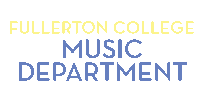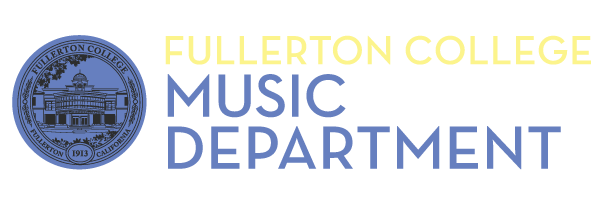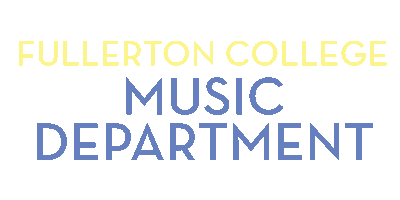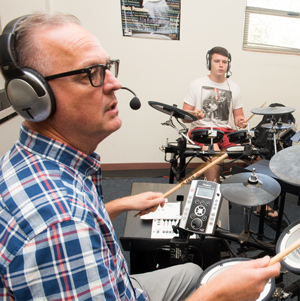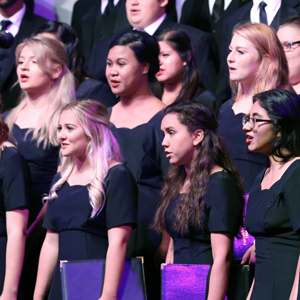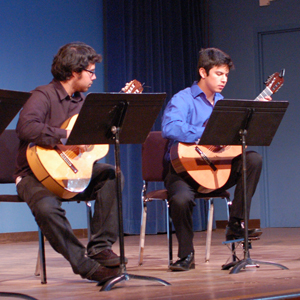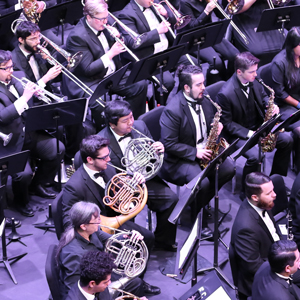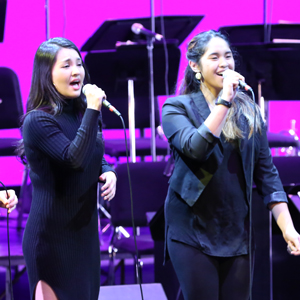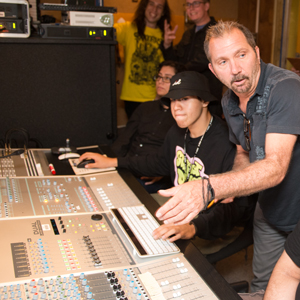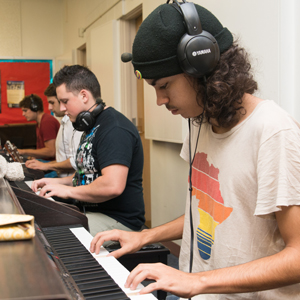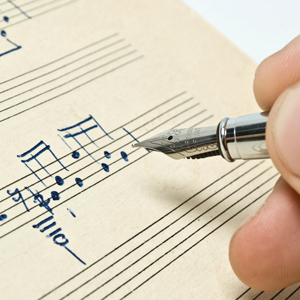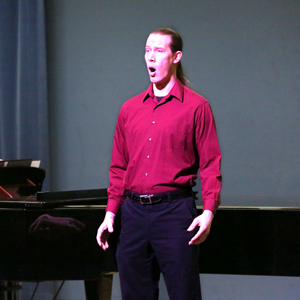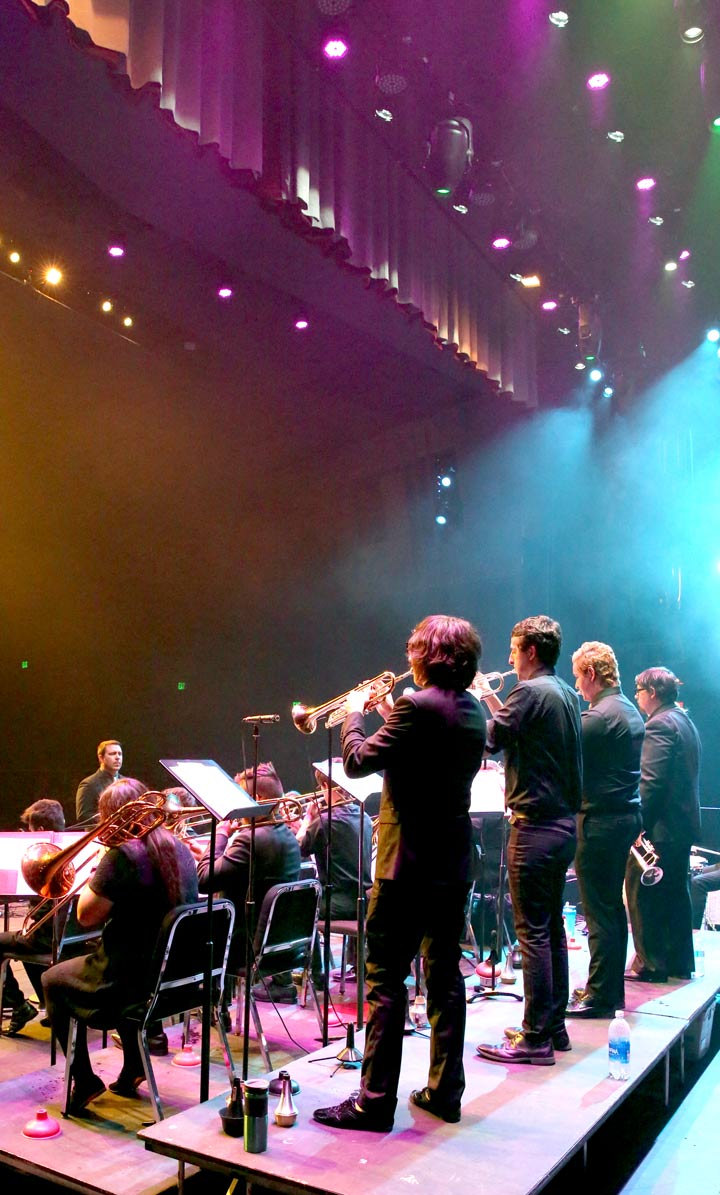Degrees and Certificates
Listed below are programs of study offered by Fullerton College and requirements for specific certificates and degrees. Students are encouraged to meet with an academic counselor for individual education planning.
- “Certificates that are not State approved, will not appear on college transcripts.”
- Certificates with more than a total of 18 units will be noted on transcript as Certificate of Achievement.
Any request for a course substitution or waiver may be discussed with a counselor and must be submitted for approval to the Admissions and Records Office.
NOTE: For students wanting to transfer to a university, see the “Transferability of Courses” section in this catalog and schedule an appointment with a counselor. Students may also reference www.assist.org. Degrees and certificate programs are listed below by Instructional Divisions.
#
A
- Accounting Associate in Science Degree
- Accounting Certificate
- Acting and Performance Level 1 Certificate
- Acting and Performance Level 2 Certificate
- Administration of Justice Associate in Science Degree
- Administration of Justice Associate in Science Degree for Transfer
- Advanced Bookkeeping Certificate
- Advanced Fashion Design Certificate
- Advanced Sheetfed Offset Presswork Certificate
- Advanced Technical Theatre Certificate
- Advertising and Graphic Design Associate in Arts Degree
- Advertising and Graphic Design Certificate
- Africana Studies Associate in Arts Degree
- Aging Studies Certificate
- American Indian and Indigenous Studies Associate in Arts Degree
- American Sign Language and Deaf Culture Associate in Arts Degree
- Anthropology Associate in Arts Degree
- Anthropology Associate in Arts Degree for Transfer
- Architectural CAD Technology Certificate
- Architecture Associate in Science Degree
- Architecture Mini CAD Certificate
- Art
- Art Associate in Arts Degree
- Art History Associate in Arts Degree
- Art History Associate in Arts Degree for Transfer
- Art History Museum Studies Associate in Arts Degree
- Asian/Pacific Islander American Studies Associate in Arts Degree
- Assistant Costume Designer Certificate
- Assistant Stage Management Certificate
- Astronomy Associate in Science Degree
- Athletic Coach Certificate
- Automatic Transmission Certificate
- Automation Fundamentals Certificate
- Automotive Chassis Certificate
- Automotive Emission Control Certificate
- Automotive Engine Performance Certificate
- Automotive Fabrication Certificate
- Automotive Light Repair Certificate
- Automotive Maintenance Certificate
- Automotive Manual Drive Train Certificate
- Automotive Service Advisor Certificate
- Automotive Service Management Certificate
- Automotive Technology Associate in Science Degree
- Automotive Technology Certificate
- Autonomous Systems Certificate
- Autonomous Systems Development Associate in Science Degree
B
- Barbering Associate in Science Degree
- Barbering Certificate
- Biological Technician Associate in Science Degree
- Biology Associate in Arts Degree
- Biology Associate in Science Degree
- Biology Associate in Science Degree for Transfer
- Biotechnology Biomanufacturing Technician Certificate
- Biotechnology Lab Assistant Skills Certificate
- Biotechnology Laboratory Technician Certificate
- Business Administration Associate in Arts Degree
- Business Administration Associate in Science Degree for Transfer 2.0
- Business Data Analytics Certificate
- Business Economics Certificate
- Business Management Associate in Science Degree
- Business Management Certificate
- Business Networking and Sales Certificate
- Business Skills Certificate
C
- Cannabis Management Certificate
- Cannabis Studies Associate in Arts Degree
- Chemistry Associate in Arts Degree
- Chemistry Associate in Science Degree
- Chemistry Associate in Science Degree for Transfer
- Chemistry Associate in Science Degree for UC Transfer
- Chicanx and Latinx Studies Associate in Arts Degree
- Child and Adolescent Development Associate in Arts Degree for Transfer
- Child Development and Educational Studies Associate in Arts Degree
- Children’s Book Illustration Certificate
- Cloud Computing and Security Skills Certificate
- Cloud Computing Certificate
- CNC Operator Certificate
- Commercial Interior Design Certificate
- Commercial Music Associate in Arts Degree
- Commercial Photography Certificate
- Communication Studies Associate in Arts Degree for Transfer 2.0
- Computer Aided Manufacturing (CAM) Certificate
- Computer Animation/Multi Media Certificate
- Computer Game Design Certificate
- Computer Game Programming Skills Certificate
- Computer Graphics Certificate
- Computer Information Systems Associate in Science Degree
- Computer Information Systems Certificate
- Computer Numerical Control (CNC) Certificate
- Computer Science Associate in Science Degree
- Computer Technician Analyst Certificate
- Computer Technician Apprentice Skills Certificate
- Construction Estimating Skills Certificate
- Construction Inspection Associate in Science Degree
- Construction Inspection Certificate
- Construction Management Associate in Science Degree
- Construction Technology Associate in Science Degree
- Construction Technology Certificate
- Conversational Programming Skills Certificate
- Cosmetology Associate in Science Degree
- Cosmetology Associate in Science Degree (1000 hours)
- Cosmetology Certificate
- Cosmetology Certificate (1000 hours)
- Cosmetology Instructor Associate in Science Degree
- Cost Accounting Certificate
- Costume Cutter, Draper, and Stitcher Certificate
- Costume Wardrobe Skills Certificate
- Counseling
- Crime Scene Investigation Certificate
- Criminal Law Specialty Certificate
- Cyber Security Analyst Certificate
- Cyber Security Associate in Science Degree
- Cyber Security Master Certificate
- Cyber Security Technician Certificate
D
- Dance Associate in Arts Degree
- Dance Teaching Certificate
- Dietary Manager Certificate
- Digital Marketing Certificate
- Digital Publication Certificate
- Digital/In-Plant Graphics Certificate
- Directing for Theatre, Film and Television Certificate
- Dressmaking-Alterations Certificate
- Drone and Autonomous Systems Associate in Science Degree
- Drone Business and Entrepreneurship Certificate
- Drone Journalism Certificate
E
- Early Childhood Education Administration Certificate
- Early Childhood Education Associate in Arts Degree
- Early Childhood Education Associate in Science Degree for Transfer
- Early Childhood Education Teacher Certificate
- Earth Science Associate in Science Degree
- Economics Associate in Arts Degree
- Economics Associate in Arts Degree for Transfer
- eDiscovery and Technology Specialty Certificate
- Electro-Mechanical Technician Certificate
- Electronic Imaging Certificate
- Elementary Teacher Education Associate in Arts Degree for Transfer
- Engineering Associate in Science Degree
- Engineering Technology Certificate
- English Associate in Arts Degree
- English Associate in Arts Degree for Transfer
- Entertainment Arts Certificate
- Entrepreneurship Associate in Science Degree
- Entrepreneurship Certificate
- Entrepreneurship Skills Certificate
- Entry-Level Accounting Certificate
- Environmental Sciences Associate in Science Degree
- Environmental Sustainability Associate in Arts Degree
- ESL Certificate of Proficiency in Academic English
- ESL Milestone Certificate of Achievement: Pathway to Transfer - Written and Oral Communication
- Esthetician Certificate
- Ethnic Studies Associate in Arts Degree
- Ethnic Studies for Educators Discipline Emphasis Certificate
- Ethnic Studies for Educators Foundations Certificate
F
- Fashion Design Associate in Arts Degree
- Fashion Design Certificate
- Fashion Illustration Certificate
- Fashion Merchandising Associate in Arts Degree
- Fashion Merchandising Certificate
- Fashion Skills Certificate
- Fashion Stylist Certificate
- Film, Television, and Electronic Media Associate in Science Degree for Transfer
- Finance Certificate
- Finance Skills Certificate
- Financial Accounting Certificate
- Flexography Skills Certificate
- Foreign Language Associate in Arts Degree
- Forensic Technician Certificate
G
- Geography Associate in Arts Degree
- Geography Associate in Arts Degree for Transfer
- Geology Associate in Science Degree
- Geology Associate in Science Degree for Transfer
- Geospatial Technologies Certificate
- Global Studies Associate in Arts Degree for Transfer
- Graphic Design Certificate
- Greenhouse and Nursery Production Certificate
H
- Health Sciences Preparation for Transfer Certificate
- History Associate in Arts Degree
- History Associate in Arts Degree for Transfer
- Human Resources Management Certificate
I
- Illustration Certificate
- Individual Taxation Certificate
- Industrial Drafting Associate in Science Degree
- Industrial Drafting — Level I Certificate
- Industrial Drafting — Level II Certificate
- Industrial Maintenance Technician Certificate
- Industrial Technology Associate in Science Degree
- Infant and Toddler Teacher Certificate
- Interdisciplinary Studies: Emphasis in Arts and Human Expression Associate in Arts Degree
- Interdisciplinary Studies: Emphasis in Science and Mathematics Associate in Arts Degree
- Interdisciplinary Studies: Emphasis in Social Behavior and Self-Development Associate in Arts
- Interdisciplinary Studies: Emphasis in Social Sciences Associate in Arts Degree
- Interior Design Assistant Certificate
- Interior Design Associate in Science Degree
- International Business Management Associate in Science Degree
- International Business Management Certificate
- International Business Skills Certificate
J
- Jazz Piano Teaching Certificate
- Journalism Associate in Arts Degree
- Journalism Associate in Arts Degree for Transfer
- Journalism Certificate
K
L
- Landscape Design/Management Certificate
- Landscape Horticulture Certificate
- Landscape Management Associate in Science Degree
- Latin-American Studies Associate in Arts Degree
- Law School First-Year Prep Specialty Certificate
- Law, Public Policy and Society Associate in Arts Degree for Transfer
- Lighting Technician Certificate
M
- Machine Technology Level I Certificate
- Machine Technology Level II Certificate
- Manufacturing Technology Associate in Science Degree
- Marketing Management
- Marketing Management Associate in Science Degree
- Marketing Management Certificate
- Marketing Management Skills Certificate
- Mastercam Certificate
- Mastercam Skills Certificate
- Mathematics Associate in Science Degree
- Mathematics Associate in Science Degree for Transfer
- Meteorology Associate in Science Degree
- Metrology Certificate
- Metrology Mini Skills Certificate
- Microbiology Associate in Science Degree
- Mindfulness Certificate
- Mobile Applications Entrepreneur Certificate
- Multimedia Journalism Certificate
- Museum Assistant Certificate
- Music Associate in Arts Degree
- Music Associate in Arts Degree for Transfer
- Music Recording and Production Certificate
- Musical Theatre Level 1 Certificate
N
- Networking Certificate
- Networking Skills Certificate
- Nursery Management Associate in Arts Degree
- Nutrition and Dietetics Associate in Science Degree for Transfer
- Nutrition and Foods Associate in Arts Degree
- Nutrition and Foods Certificate
O
- Oceanography Associate in Science Degree
- Office Applications Apprentice Certificate
- Office Applications Technician Certificate
- Ornamental Horticulture Associate in Science Degree
- Ornamental Horticulture Certificate
P
- Paralegal Studies Associate in Science Degree
- Paralegal Studies Certificate
- Payroll Accounting Certificate
- Personal Trainer Certificate
- Pest Management Certificate
- Philosophy Associate in Arts Degree
- Philosophy Associate in Arts Degree for Transfer
- Photography Associate in Arts Degree
- Physical Education Associate in Arts Degree
- Physical Education — Fitness Associate in Science Degree
- Physics Associate in Science Degree for Transfer
- Physics Associate in Science Degree for UC Transfer
- Piano Teaching Certificate
- Pilates Certificate
- Political Science Associate in Arts Degree for Transfer
- Practical Politics Certificate
- Pre-Nursing Associate in Science Degree
- Printing Technology (General) Certificate
- Printing Technology Associate in Science Degree
- Professional Photography Certificate
- Programming Certificate
- Programming Skills Certificate
- Psychology Associate in Arts Degree
- Psychology Associate in Arts Degree for Transfer
- Public Relations Certificate
R
- Radio and Television/Video Production Certificate
- Radio Broadcast News Associate in Arts Degree
- Radio Broadcast News Certificate
- Radio Broadcasting Associate in Arts Degree
- Radio Broadcasting Certificate
- Radio Production Associate in Arts Degree
- Real Estate Brokers Certificate
- Real Estate Law Specialty Certificate
- Real Estate Management Associate in Science Degree
- Real Estate Management Certificate
- Real Estate Sales Skills Certificate
- Religious Studies Associate in Arts Degree
- Research Fundamentals Skills Certificate
- Residential Interior Design Certificate
- Retail Management Certificate
S
- Scenic Artist Certificate
- Scoring, Music Production and Sound Design Certificate
- Screen Printing Certificate
- Small Business Bookkeeping Certificate
- Social Justice Studies
- Social Justice Studies - Ethnic Studies Associate in Arts Degree for Transfer
- Social Justice Studies - Gender Studies Associate in Arts Degree for Transfer
- Social Justice Studies: General Associate in Arts Degree for Transfer
- Sociology Associate in Arts Degree for Transfer
- Sound Technician Certificate
- Spanish Associate in Arts Degree for Transfer
- Spanish Language Media Certificate
- Special Education Certificate
- Sports Broadcasting Certificate
- Sports Nutrition Certificate
- Stage and Screen Combat Level 1 Certificate
- Stage and Screen Combat Level 2 Certificate
- Stage Management Certificate
- Storyboarding Certificate
- Studio Arts Associate in Arts Degree for Transfer
- Supply Chain Management Certificate
- Surfcam Skills Certificate
- Swiss Lathe Certificate
T
- Technical Theatre Certificate
- Television and Film Associate in Arts Degree
- Television and Film Production Certificate
- Textiles and Clothing Associate in Arts Degree
- The Business of Art Certificate
- Theatre Arts Associate in Arts Degree
- Theatre Arts Associate in Arts Degree for Transfer
- Theatre Arts: Acting and Performance Associate in Arts Degree
- Theatre Arts: Technical Theatre Associate in Arts Degree
- Theme Park Technician Certificate
- Theme Park Technology Specialist Certificate
U
V
W
Y
Student Learning Outcomes
DISCLAIMER: Any student interested in matriculating through the certificate and/or degree program should cross reference the data found on this page against the official catalog and/or meet with a campus counselor.


